
Enhancing Student Outcomes and Teacher Practice through Math Mastery: A Comprehensive Study Tour and Curriculum Framework Development.
As a primary school teacher with ten years of classroom experience, I’ve had the opportunity to teach across year levels from Prep to Year 3. Throughout my teaching journey, I’ve developed a strong passion for ensuring that every student feels a sense of success in the classroom and equally, that every teacher feels confident and equipped to deliver high-quality lessons. Over time, I’ve become increasingly interested in how we can bring greater consistency and clarity to the way we teach mathematics across the early years.
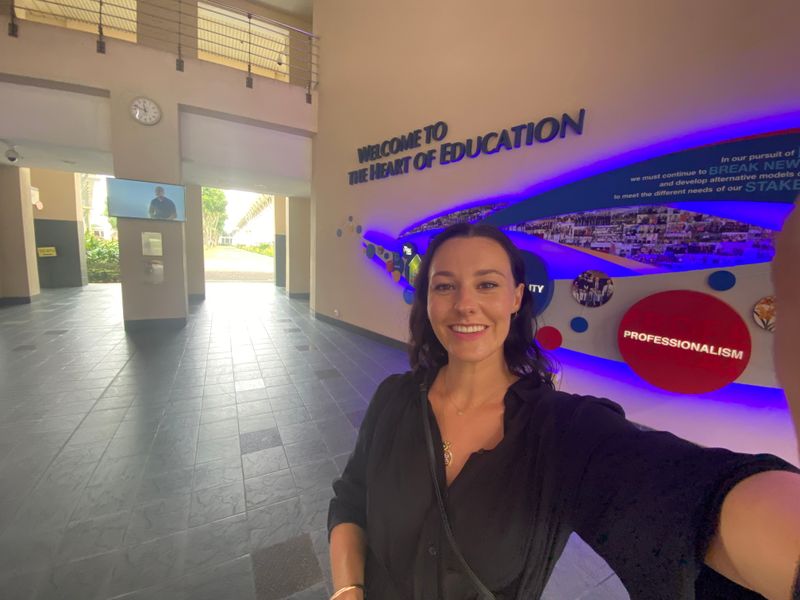
In 2024, I was fortunate to be awarded the inaugural Toowoomba Grammar School Teaching Fellowship to explore this interest more. My proposal, titled Enhancing Student Outcomes and Teacher Practice through Math Mastery: A Comprehensive Study Tour and Curriculum Framework Development, focused on investigating how the Math Mastery approach could strengthen both student understanding and teacher instruction in mathematics. This opportunity took me to Singapore to investigate the Math Mastery approach - an internationally recognised model of mathematics instruction that supports every student to achieve deep understanding through carefully sequenced, explicit teaching.
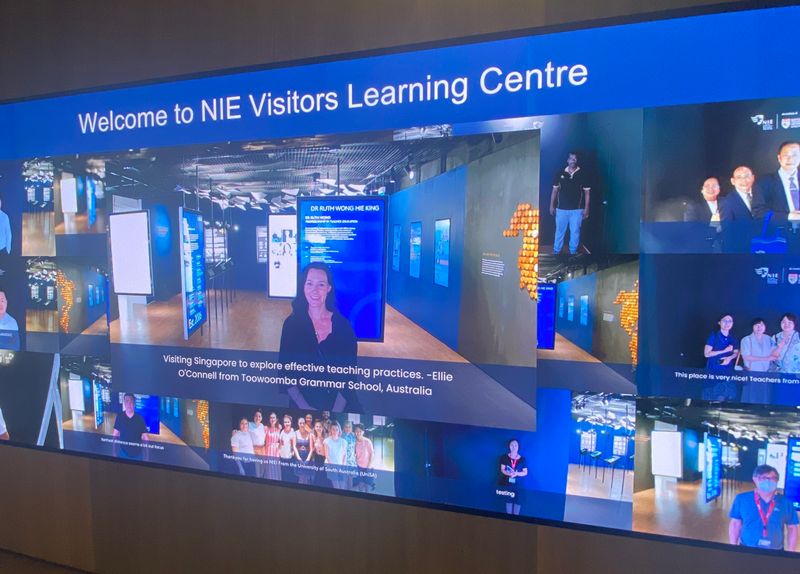
Why Mathematics? Why Now?
Across Australia, there is growing national concern about the long-term decline in mathematics achievement. Reports such as the Gonski Review (2018) highlight that many students are not mastering the basic skills needed for future learning, and that teachers need more explicit, structured tools to support all learners. In the early years of schooling—where concepts are first introduced, and mathematical mindsets are formed—it’s crucial that instruction is clear, consistent and effective. Gaps in understanding at this stage can have long-lasting effects on a child’s confidence and progress. The fellowship was an opportunity to examine international best practices and bring back evidence-informed strategies that could enhance both student outcomes and teacher practice in our own School.
Learning from Singapore: Schools and Insights
During my study tour in Singapore, I visited two leading international schools: Dulwich College and Invictus International School. Both schools use mastery-based approaches to mathematics, with structured, well-sequenced programs designed to develop deep conceptual understanding. At Dulwich College I observed math lessons from Years 1 to 5 that emphasised both mastery and practical application. The classrooms fostered a calm, focused learning environment in which teachers guided students through new concepts using clear, structured instruction, ensuring mastery through modelling, guided practice and checking for understanding before progressing. I also engaged in discussions with the school’s mathematics leadership team, who shared their planning processes and how they support teachers to differentiate within whole-class teaching.
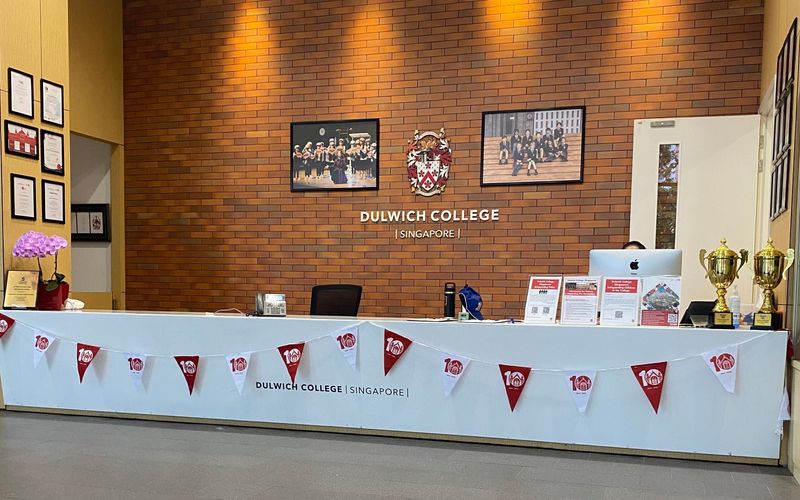
Invictus International School offered a contrasting yet equally valuable perspective. With a diverse cohort of learners and a flexible curriculum model, their team demonstrated how mastery principles can be embedded in a range of contexts. I also had the opportunity to meet with local educational consultants and curriculum developers, who offered insights into how Singapore’s national curriculum supports cumulative learning, daily review and concept mastery from the early years onwards.
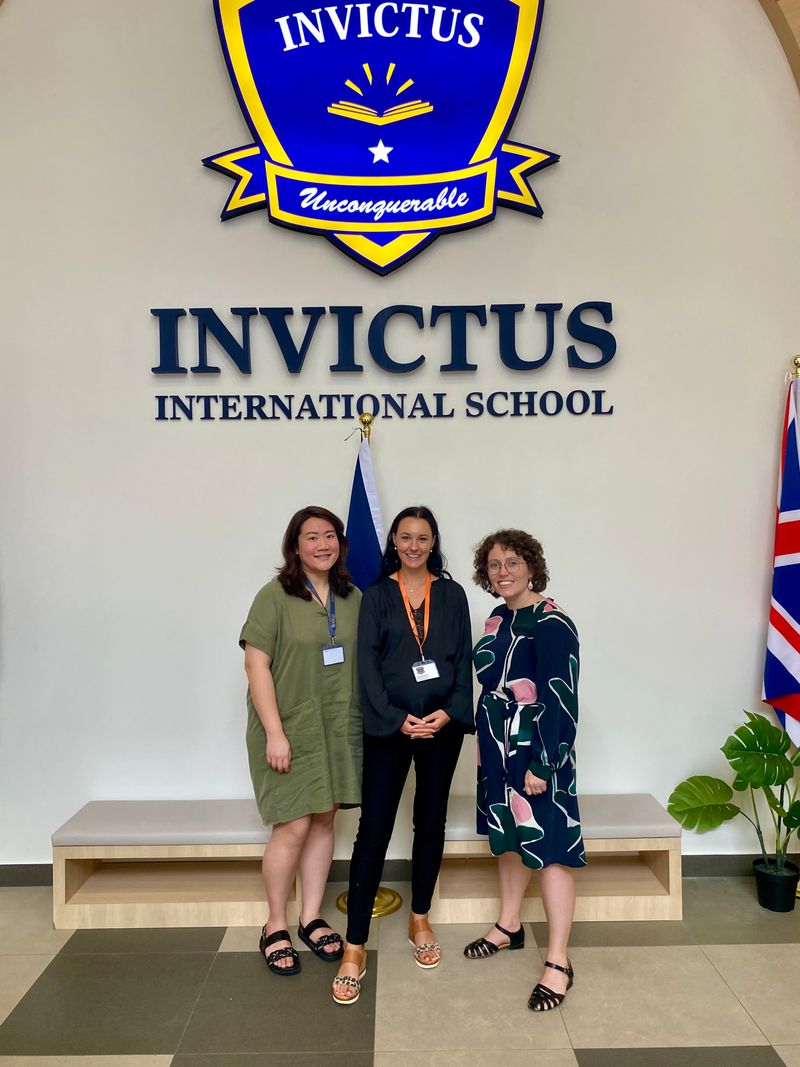
Key Findings: What Makes Mastery Work?
My observations confirmed the power of structured, explicit teaching in building strong foundations in mathematics. These were the key elements that stood out across all settings:
- Clear Learning Objectives
Teachers clearly define what students need to know and be able to do at the end of each unit or lesson.
- Whole-Class Instruction with Embedded Differentiation
Rather than streaming students by ability, mastery classrooms taught concepts to the whole class while using questioning, scaffolding and targeted support to meet individual needs.
- Corrective Instruction
Students who don't achieve mastery receive additional instruction or support to address knowledge gaps.
- Cumulative, Carefully Sequenced Learning
Each lesson built directly on the last, with time allocated for review and consolidation. This ensured that no student was left behind and that concepts were truly understood before new material was introduced.
- Mathematical Language and Reasoning
Teachers modelled precise vocabulary and encouraged students to explain their thinking. This supported deeper reasoning and helped students internalise core concepts.
- Learning Routines
Clear instructional routines and behaviours are established in every classroom, reinforcing expectations and supporting learning.
- Lesson Resources
Hands-on materials and visual examples are carefully chosen to help students connect with new concepts in ways that suit their learning needs.
- Fluency
Essential number facts are practised until automatic, helping students reduce cognitive load, enhancing students’ ability to focus on new and more complex ideas.
- Calm, Confident Learners
Most powerfully, students appeared confident, focused and proud of their mathematical thinking. The clear structure and shared learning journey contributed to a positive and inclusive classroom culture.
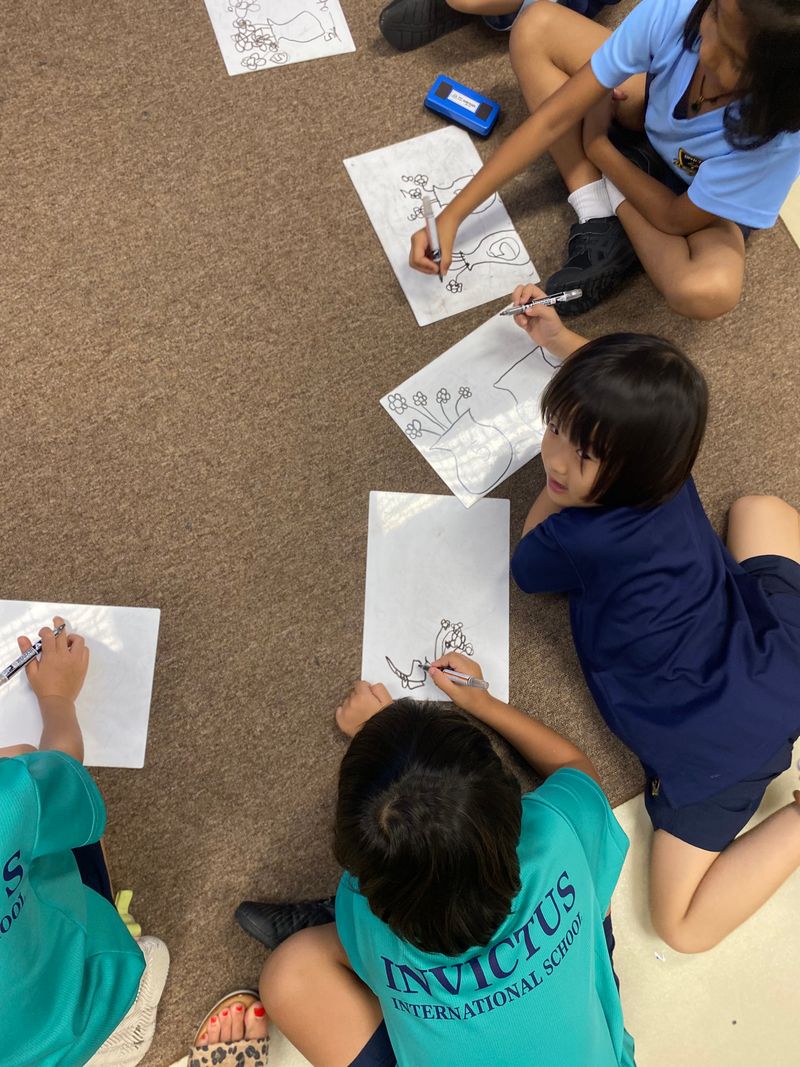
Global Perspective: Insights from Kinder World School
As a part of my research, I was able to engage in a conversation with Peter Baker, Principal Supervisor of 13 KinderWorld International Schools across Vietnam, I was able to dive deeper into how the Math Mastery approach works in large, diverse educational settings. These schools have adopted the Singapore Math model, a mastery-based framework built around explicit teaching and cumulative learning - many of the same principles I explored during my study tour.
Peter shared that their decision to adopt this approach was driven by a need for a consistent, evidence-based program that teachers could pick up quickly, deliver confidently and implement cost-effectively. “We started the explicit teaching model a couple of years back,” he explained. “We call it the KinderWorld Model. Retrieval practice to strengthen knowledge and problem-based application of learning is also included. I think it certainly makes a difference.”
What stood out to me in our discussion was just how closely their journey mirrors our own at TGS. We have already embedded strong practices in literacy through well-structured, whole-school programs that align with explicit teaching and the science of learning. However, mathematics remains an area where we see room for greater consistency and greater gains.
While our data confirms that we continue to perform above the state average in mathematics, recent NAPLAN results highlight a national decline in numeracy - a trend that we are aiming to avoid in our own School’s results. While we continue to do well, we have an opportunity and a responsibility to do even better for our boys. This is not just a local issue. In 2015, the Office of the Chief Scientist collaborated with ACARA to examine schools across Australia that had made significant improvements in numeracy over two years. Their report found that mastery-oriented environments were a consistent feature in high-performing schools (Smith et al., 2028).
When I asked Peter how the performance of his students compared to their peers in Australia, his response was compelling:
“We’ve had feedback from parents - many of whom are teachers - saying that when their children return to Australia, they are at least one to two years ahead in mathematics compared to their peers at home.”
This reinforces what global research has been saying for some time: structured, explicit, mastery-based teaching works. And more importantly, it works for all learners - not just the confident few.
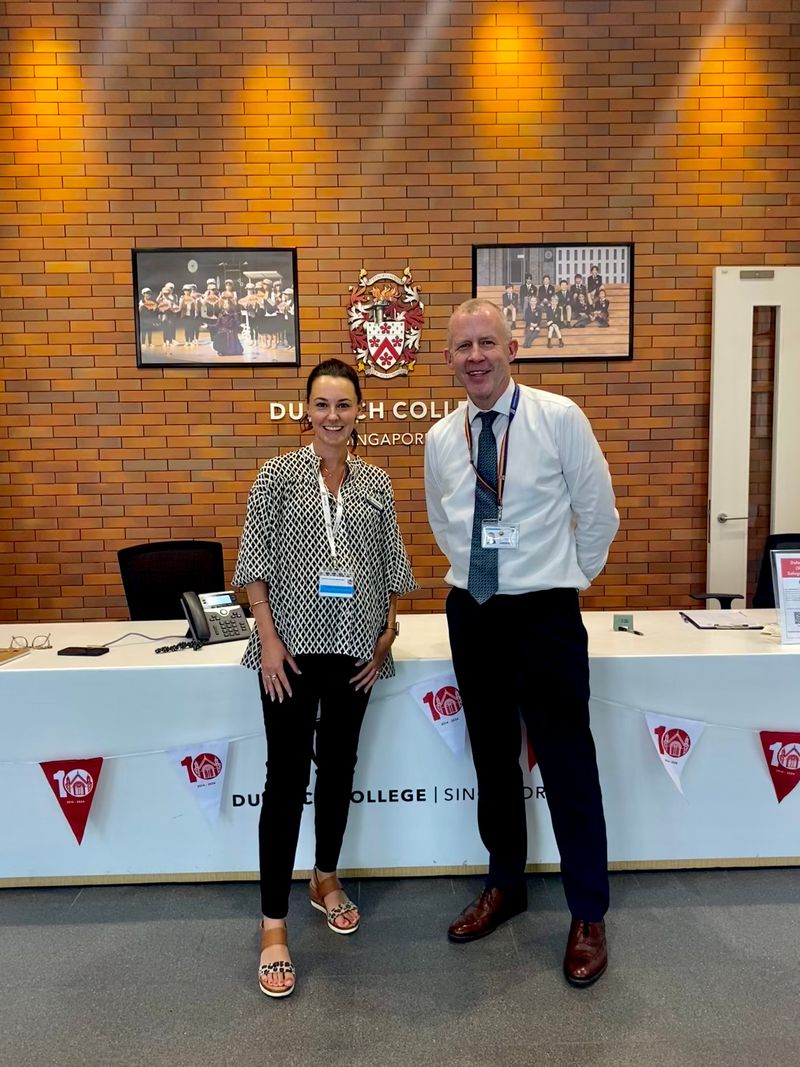
Bringing It Home: What’s Next for TGS?
I’m incredibly grateful for the opportunity this fellowship has provided - not only in shaping and deepening my own practice, but in contributing to a broader, shared vision for mathematics at TGS. This experience reinforced my belief that every student can succeed in mathematics when we give them the right tools, time and teaching. We are now laying the foundations for a clear and united approach to numeracy, one that will equip every boy with the confidence and skills to succeed - not just in the classroom, but throughout their schooling and beyond. And just as importantly, we’re building a community of confident teachers who are equipped to deliver lessons that are clear, consistent and deeply impactful.
I would like to sincerely thank Dr John Kinniburgh for granting me the opportunity to undertake this Fellowship. His support and encouragement throughout the process has been instrumental, and I am truly grateful for his guidance and mentorship. Dr Kinniburgh’s commitment to prioritising high-quality professional development for staff continues to shape a culture of growth and excellence in teaching and learning at TGS.
Latest Blog
Tuning in to TGS Old Boy (1995-99) - Stuart St Vincent Welch
Our Old Boys have such diverse career paths; we are so proud of the good young men they become and how they make meaningful contributions to their communities. Stuart St Vincent Welch describes himself as an average student who had no idea what he wanted to do after school. But drawing on the TGS values of hard work, respect and resilience he is now working as a Sound Engineer for Barking Owl in New York City, rubbing shoulders with some of the world’s most renowned musicians and actors. He…
The TGS Show Cattle Team - On the moooove
The TGS Show Cattle Team commenced in Term 1 2021 under the guidance of Mr Jack Murphy and Mrs Julie Brophy. The concept of the team was to give boys a hands-on, extracurricular opportunity in the agricultural industry. The boys have been competing in the Young Judges’ competitions at a range of shows across Queensland. The Young Judges’ competition is based on the goal of expanding the boys' knowledge of the skills that are a foundation of the animal production industry, helping them as…
The Importance of Routines
Routines are an important part of our daily lives, providing structure and stability. This is especially true for children in their formative years, who benefit from having consistent and predictable routines in both their school and home environments. At Toowoomba Grammar School Junior School, we believe that routines are essential for helping students thrive both inside and outside the classroom. One of the key ways in which routines help students is by providing a sense of security and…
Ten Steps Ahead - Jackie Gallagher
As a high school athlete, Jackie Gallagher had the world at her feet. She was in a unique position where she was excellent at any distance from 100m to 800m. She broke Queensland and National records and was regularly selected for State and National teams. Jackie was selected for the Australian Youth team to compete at the World Youth Championships in Canada as an U18 along with the Australian Junior Commonwealth Games and the Youth Olympics, before making the U20 Australian team to compete at…
The Makings of a Premiership
The 2022 1st V Basketball squad will be forever etched in the pages of Toowoomba Grammar School history as the first TGS team to win a GPS Basketball Premiership since the competition commenced in 1984. Head of Basketball, and 1st V Coach, Mr Kabe Cicolini has been instrumental in the growth and success of not just our leading team, but of the TGS Basketball Program as a whole. Kabe has come from a background of playing GPS sport – cricket, rugby and basketball as a student at Ipswich Grammar…
Creating a Learning Environment that Boys Enjoy
Creating an environment for students to access and engage in learning is the educational philosophy of the new Toowoomba Grammar School Head of Junior School, Mr Ken Raven. “This requires a supportive an inclusive learning environment across the school where everyone feels they can make a positive contribution,” Mr Raven stated. “I encourage evidence-informed, explicit teaching of curriculum that sparks curiosity and interest for students to engage and explore.” Parental interaction and…
Introducing our new Deputy Head of Junior School (Teaching and Learning), Mrs Chantelle Bauer
Toowoomba Grammar School is excited to welcome our new Deputy Head of Junior School (Teaching and Learning), Mrs Chantelle Bauer. Mrs Bauer brings a wealth of experience and passion to her new role, having lived and worked in the Darling Downs and Southwest Queensland region her entire life. She was born and bred in St George, attended university in Toowoomba and took her first teaching role in Roma. She has worked in various roles across the region, including Year Level Coordinator, Head of…
You can't know a student without knowing where they come from
Boarding at Toowoomba Grammar School can be described as many things such as evolving identity, growing personally and developing character in your second home, but it is also about growing your family. Head of Boyce House boarding, Mr Michael Hall and his family, certainly enjoyed that opportunity over January. Catching up with a beautiful collection of current families from Boyce House was a privilege and has helped to build the relationships of trust and care that are essential in a…
DNF (Did Not Finish)
- Dan CrookHead of Library and Information Services I was talking books with a friend the other day; an avid reader, she had been looking for some light reads in new genre for the holidays, and so had sought out the wisdom of the internet. After watching a few BookToks (Tiktok book recommendations) she’d settled on some titles and begun to read. However after investing a good amount of her time and getting half way through the first and most highly recommended book, she asked herself, and then…